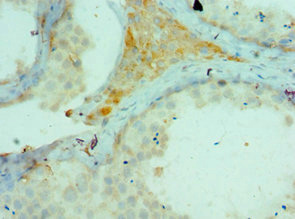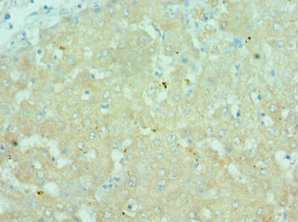Full Product Name
Rabbit anti-Homo sapiens (Human) CTCFL Polyclonal antibody
Alternative Names
BORIS like protein antibody; Brother of the regulator of imprinted sites antibody; Cancer/testis antigen 27 antibody; CCCTC binding factor (zinc finger protein) like antibody; CCCTC-binding factor antibody; CT27 antibody; CTCF paralog antibody; CTCF T antibody; CTCF-like protein antibody; Ctcfl antibody; CTCFL_HUMAN antibody; dJ579F20.2 antibody; HMG 1L1 antibody; HMGB1L1 antibody; MGC163358 antibody; MGC169105 antibody; MGC169106 antibody; Putative high mobility group protein 1 like 1 antibody; Putative high mobility group protein B1 like 1 antibody; Transcriptional repressor CTCFL antibody; Zinc finger protein CTCF-T antibody
Immunogen
Recombinant Human Transcriptional repressor CTCFL protein (1-270AA)
Immunogen Species
Homo sapiens (Human)
Purification Method
Antigen Affinity Purified
Concentration
It differs from different batches. Please contact us to confirm it.
Buffer
PBS with 0.02% sodium azide, 50% glycerol, pH7.3.
Tested Applications
ELISA, IHC
Recommended Dilution
| Application |
Recommended Dilution |
| IHC |
1:20-1:200 |
Storage
Upon receipt, store at -20°C or -80°C. Avoid repeated freeze.
Lead Time
Basically, we can dispatch the products out in 1-3 working days after receiving your orders. Delivery time maybe differs from different purchasing way or location, please kindly consult your local distributors for specific delivery time.
Usage
For Research Use Only. Not for use in diagnostic or therapeutic procedures.







